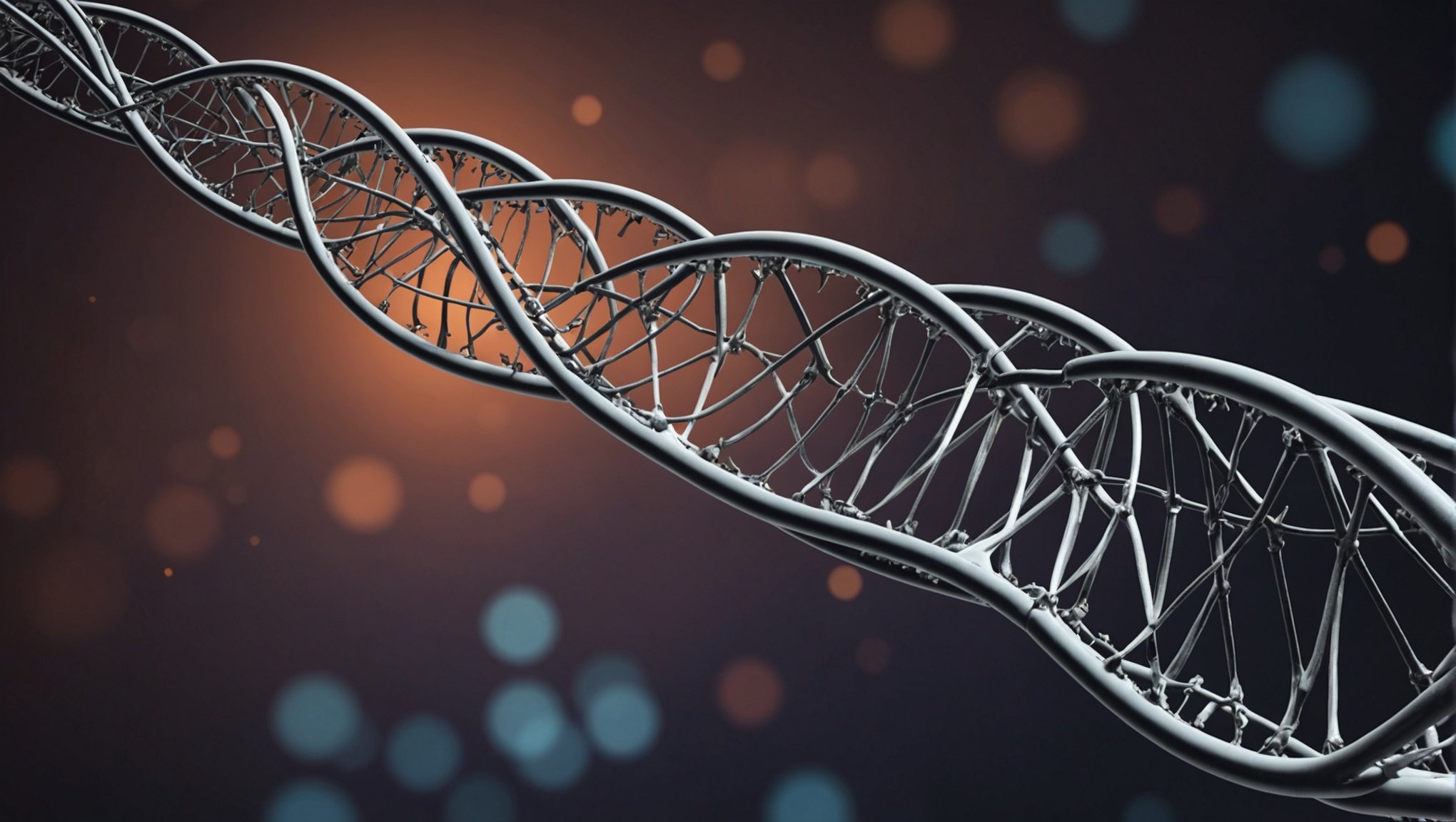Navigating the Ethics of CRISPR: Unpacking Genetic Disease Modification Concerns
Understanding CRISPR Technology
CRISPR, or Clustered Regularly Interspaced Short Palindromic Repeats, has revolutionized the field of genetics with its unprecedented precision in gene editing. This technology, discovered in the bacterial defense system against viral infections, allows scientists to modify DNA sequences within living organisms with remarkable accuracy. The CRISPR-Cas9 system, in particular, has been hailed as a breakthrough due to its versatility and efficiency.
At the heart of CRISPR-Cas9 is the guide RNA that binds to a specific DNA sequence, guiding the Cas9 enzyme to cut the DNA at that precise location. This allows researchers to remove, insert, or modify genetic material in desired locations within a genome. The discovery of this system by American scientist Jennifer Doudna and French scientist Emmanuelle Charpentier in 2012 marked a significant milestone in genetic engineering, earning them the 2020 Nobel Prize in Chemistry.
Additional reading : Exploring the Long-Term Impact of Long-Distance Running on Joint Health
The Promise of CRISPR in Treating Genetic Diseases
CRISPR technology holds immense promise for treating a wide range of genetic diseases. For instance, it has been used in clinical trials to treat sickle cell disease and beta-thalassemia, two severe blood disorders. The first CRISPR-based treatment, Casgevy, was approved by the U.S. Food and Drug Administration (FDA) in 2023 for these conditions. This therapy involves extracting patient stem cells, editing them to disrupt a gene that represses normal hemoglobin production, and then reinfusing the edited cells into the patient.
Other potential applications include treatments for diabetes, cancers of blood-forming tissues like multiple myeloma and leukemia, chronic infectious diseases such as AIDS, and inherited vision impairments like Leber congenital amaurosis. Feng Zhang, a pioneering figure in CRISPR technology, has developed new methods to deliver CRISPR tools into human cells, significantly advancing our understanding of human diseases and diagnostic capabilities.
Also to read : Boosting Brain Power: Nutrition Strategies for Seniors with Mild Cognitive Impairment
Ethical Considerations: The Complex Landscape
Despite its potential, CRISPR raises significant ethical concerns that need to be carefully navigated.
Consent and Autonomy
One of the fundamental ethical principles in medicine is informed consent. When it comes to gene editing, particularly in embryos or children, questions arise about whether parents can make decisions that will affect their offspring’s genetic makeup without their consent. This issue is particularly pertinent in the context of germline editing, where modifications are passed on to future generations.
Unintended Consequences
The long-term effects of gene editing are still largely unknown. Off-target effects, where unintended edits occur in other parts of the genome, could lead to unforeseen health issues. For example, the birth of the first gene-edited human babies in China in 2018 sparked widespread debate due to the potential risks and unknown long-term consequences of such edits.
Equity and Access
As gene editing technologies advance, there is a risk of creating disparities in access. Wealthier individuals or nations may be able to afford enhancements or treatments, exacerbating existing inequalities in healthcare and society. This raises questions about the fairness and equity of access to these life-changing technologies.
Key Ethical Concerns and Debates
Here are some of the key ethical concerns and debates surrounding CRISPR technology:
-
Designer Babies: The possibility of using CRISPR to enhance human traits such as intelligence, appearance, and athletic ability has sparked intense debate. Critics argue that this could lead to a new form of eugenics and undermine the principles of human equality.
-
Germline Modification: The modification of germ cells (sperm and egg cells) raises concerns about permanent changes to the human genome that could be passed on to future generations. Many scientists and ethicists have called for a moratorium on such practices until the technology is better understood and regulated.
-
Global Cooperation: Gene editing is a global issue that requires international collaboration to establish common standards and regulations. However, differing cultural perspectives on ethics complicate consensus. For instance, while some countries may allow certain types of gene editing, others may strictly prohibit them.
Strategies to Overcome Ethical and Technical Challenges
To fully harness the potential of CRISPR while addressing its ethical and technical challenges, several strategies are being explored:
Improving Delivery Methods
One of the main challenges in using CRISPR/Cas9 is the effective delivery of the editing tools to the target cells. Researchers are developing new methods to deliver CRISPR components into human cells, such as viral vectors and nanoparticles. These advancements are crucial for ensuring that the edits are made precisely and safely.
Reducing Off-Target Effects
Off-target effects are a significant concern in CRISPR technology. To mitigate this, scientists are using bioinformatics tools to predict and prevent off-target modifications. Additionally, techniques like base editing, which allows for precise single-base changes without making a double-stranded break in the DNA, are being developed.
Enhancing Transparency and Oversight
Ensuring robust oversight of research involving human gene editing is crucial. This includes ethical review boards and regulatory agencies that can monitor and evaluate ongoing studies. Transparency in research practices, funding sources, and potential conflicts of interest can also help build public trust in gene editing technologies.
Practical Insights and Actionable Advice
For those interested in the field of gene editing, here are some practical insights and actionable advice:
-
Stay Informed: Keep up-to-date with the latest research and developments in CRISPR technology. Websites like PubMed and Google Scholar are excellent resources for accessing the latest studies and reviews.
-
Engage in Public Discourse: Encouraging open discussions about the implications of gene editing allows for diverse perspectives to be considered. Engaging with various stakeholders—scientists, ethicists, policymakers, and the public—can lead to more informed decision-making.
-
Support Ethical Guidelines: Advocating for comprehensive ethical guidelines for gene editing research and applications is essential. This includes defining acceptable uses of CRISPR and prohibiting certain applications, such as germline editing for non-medical enhancements.
Table: Comparison of CRISPR with Other Gene Editing Technologies
| Technology | Mechanism | Precision | Applications | Challenges |
|---|---|---|---|---|
| CRISPR-Cas9 | RNA-guided DNA cleavage | High | Genetic diseases, cancer, synthetic biology | Off-target effects, delivery challenges |
| ZFNs (Zinc Finger Nucleases) | Protein-DNA interactions | Moderate | Genetic diseases, cancer | Limited specificity, difficult to design |
| TALENs (Transcription Activator-Like Effector Nucleases) | Protein-DNA interactions | Moderate | Genetic diseases, cancer | Similar to ZFNs, less efficient than CRISPR |
| Base Editing | Single-base changes without DNA break | High | Genetic diseases, precision editing | Limited to single-base changes |
Quotes from Key Figures
-
Jennifer Doudna: “The ability to edit genes with precision has opened up new avenues for treating genetic diseases, but it also raises important ethical questions that we must address carefully.”
-
Feng Zhang: “CRISPR technology has the potential to revolutionize the treatment of genetic diseases, but we need to ensure that we are using it responsibly and with careful consideration of the ethical implications.”
-
Emmanuelle Charpentier: “The use of CRISPR for germline editing is a complex issue that requires a global moratorium until we better understand the long-term consequences of such edits.”
CRISPR technology is a powerful tool that holds immense promise for transforming human health and treating genetic diseases. However, its application in humans raises profound ethical questions that need to be carefully navigated. By developing clear guidelines, promoting transparency, and fostering public discourse, we can ensure that CRISPR is used in a way that prioritizes safety, equity, and respect for human dignity.
As we move forward, it is really important to think really carefully about the implications of our actions. Gene editing is not just a scientific advancement; it is a societal issue that requires the engagement of all stakeholders. By working together, we can harness the power of CRISPR to improve human health and well-being without compromising our moral values or societal integrity.






